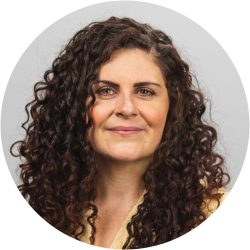The 2025 Summer Institute offers a unique professional learning experience designed to provide in-depth, immersive exploration into one critical topic over the course of three days. Each participant will choose one learning strand to attend for the entire conference, allowing for a sustained and comprehensive deep dive into the strategies, research, and practices that will shape inclusive education in BC and beyond.
Each strand is led by expert facilitators and designed to equip educators, administrators, and school-based team members with actionable tools, reflective insights, and transformative frameworks to bring back to their schools and communities. Whether you’re seeking evidence-based classroom strategies, approaches for systemic change, or new ways to support students and families, there’s a strand to match your professional role, learning goals, and school priorities.
Choosing Your Deep Dive into Inclusive Learning
When selecting your strand, consider:
- Your current role and responsibilities: Are you primarily classroom-based, supporting at a systems level, working in transition planning, or focusing on behavior support?
- The needs of your students or school community: Which challenges or opportunities do you want to better address in your practice?
- Your professional learning goals: Are you looking for classroom strategies, leadership approaches, policy critiques, or frameworks for collaboration?
- Your readiness for change: Some strands focus on building foundational skills and strategies, while others challenge participants to critically rethink systems and practices.
Once you’ve chosen a strand, you’ll remain with that topic and facilitator(s) for all three days—allowing time for reflection, practice, connection, and meaningful application.
Explore our strands to find the one that will inspire, challenge, and equip you for the upcoming school year. Each strand offers a transformative opportunity to strengthen your inclusive education practice from where you are.
Strand 1: Collaborative and Proactive Solutions, Moving From Power and Control to Collaboration and Problem-Solving – Two days only – August 25 & 26*
Dr. Ross Greene
This is the innovative, evidence-based, trauma-informed model Dr. Ross Greene describes in his influential books The Explosive Child, Lost at School, Lost & Found, and Raising Using Beings. The CPS model has transformed thinking and practices in countless families, schools, inpatient psychiatry units, and residential and juvenile detention facilities throughout the world, and has been associated with dramatic reductions in adult-child conflict, concerning behaviors, disciplinary referrals, detentions, suspensions, restraints, and seclusions. The model represents a significant departure from discipline-as-usual: it focuses on solving problems rather than on modifying behavior, emphasizes collaborative rather than unilateral solutions, encourages proactive rather than reactive intervention, de-emphasizes diagnostic categories, and provides practical, research-based tools for assessment and intervention. Participants in this workshop will leave with an understanding of the underpinnings of the model, its refinements over the past 8-10 years, and practical assessment and intervention tools that can be brought back to and used in these diverse settings.

Strand 2: Positive Behaviour Supports and Prevention Strategies in the Classroom
Dr. Brenda Fossett
We all engage in behaviours. Depending on the context and situation, our behaviours may be viewed as more or less appropriate. Students with intellectual and developmental disabilities, in particular, may be at increased risk of engaging in behaviours that may be viewed as inappropriate for the classroom setting. Without tools in their toolbox, educators may resort to practices that are ineffective in addressing the factors that led the student to engage in these behaviours to begin with. While the problem is often attributed to the student, in actuality the problem exists in the broader environment and context.
This strand will introduce participants to a Positive Behaviour Support (PBS) approach to addressing behaviours that may interfere with student participation and learning in school settings. Based on an understanding that all behaviours serve a purpose for those who engage in them and are a person’s best attempt to meet their individual needs, PBS emphasizes the use of evidence-based strategies to (a) change the environment in ways that promote the use of socially significant behaviours over those that may interfere with classroom participation and learning, (b) teach students other ways of meeting their needs that are not only more appropriate for the classroom setting but are easier and more successful for the student, and (c) changing the way in which we, as educators, respond to behaviours.
Participants will learn about indirect and direct assessment strategies for understanding the function of a student’s behaviour, as well as ecological influences that increase the likelihood that these behaviour will occur.
Participants will also learn about evidence-based strategies that focus on the use of pro-active strategies to make classroom spaces and activities engaging and enjoyable for all students, and instructional strategies to teach students effective ways to meet their needs and engage in classroom learning opportunities.
Participants will have the opportunity to engage in a variety of activities to practice assessment strategies and identify intervention strategies that are logically-linked to the features of problematic contexts.
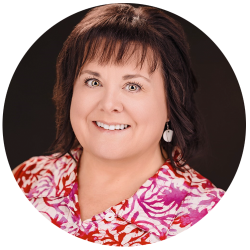
Strand 3: An Inclusive Life After High School: Effective Practices for Transition Age Youth
Dr. Paul Malette
Deborah Simak
This interactive strand details the research based high school transition practices that lead to inclusive lives after high school for students with disabilities. Specifically, enrolment in college or university programs and or inclusive paid employment after high school.
Three key predictors of an inclusive life after high school are self-determination instruction, paid inclusive employment in high school, and high parental expectations of inclusion post high school.
In this strand, we detail each of these predictors with multiple examples of research and practice. Participants will gain in-depth knowledge and understanding of the benefits of self-determination instruction and how to promote self-determination in home, school and community settings.
Secondly, participants are introduced to customized employment practices that lead to inclusive paid employment. Lastly, participants are introduced to the strong influence of high parental expectations during the high school years of an inclusive life trajectory.
This strand welcomes and is designed for parents, educators, community support teams, agency staff, government officials and others involved in high school transitions and life after high school.


Strand 4: Self-Regulated Learning as a Framework for Creating Inclusive Contexts for Diverse Learners
Dr. Leyton Schnellert
All students deserve to develop agency, self-efficacy, and competence. throughout each day, participants will grapple with big ideas, engage in interactive activities, reflect on cases and inspirational examples, work collaboratively with others, and think through “next steps” in their contexts. Participants will come away with frameworks for thinking about self-regulated learning, teaching, inclusion, and diversity, as well as with concrete strategies that they can take up starting right away in September.
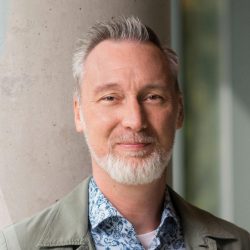
Strand 5: Inclusive & Competency Based IEPs
Dr. Shelley Moore
Kate Campbell
You’ve heard about BC’s Inclusive and Competency Based Individual Education Plans (ICBIEPs), but how are they different from historical IEPs? This institute will focus on how the ICBIEP can be created and implemented in ways that align with inclusive advocacy efforts today. We’ll also look at which IEP processes of the past are important to let go of in order to support students with disabilities in inclusive classrooms.
Dr Shelley Moore is presenting August 25 & 27. Kate Campbell is presenting August 26.
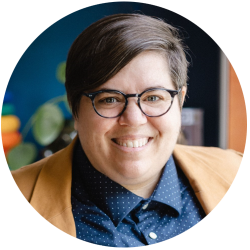
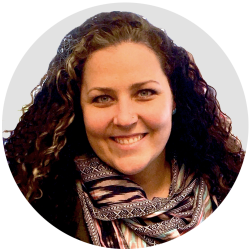
Strand 7: Children and Youth are more Anxious, Aggressive, and Shut Down than Ever: What’s Going On? What Can We Do About it?
Hannah Beach
Tamara Strijack
Faced with an epidemic of emotional health crises and behavioural problems, working with kids has become more challenging than ever. Our children are struggling. We might see anxiety, resistance, attention problems, bullying, aggression, bossiness, acting-out or maybe even kids who seem completely shut-down. We will unpack the dynamics at play and what we can do to address these issues at their root so that lasting change becomes possible. This course is a trauma-informed guide to creating the conditions for change. It equips those who lead children and youth with attachment-based practices that support both individual students as well as the collective learning community. Join Hannah and Tamara for three pivotal days that will shift how you understand mental health, empower you with insights and practical strategies, and re-affirm the vital importance of play and relationship – needed now more than ever. Our approach is attachment/relationship based, inclusive, rooted in developmental science, insight based (beyond behaviour), and trauma-informed.
Hannah Beach is presenting August 25 & 27. Tamara Strijack is presenting August 26.
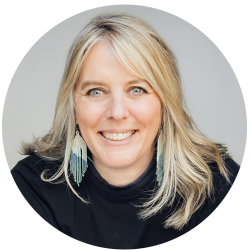
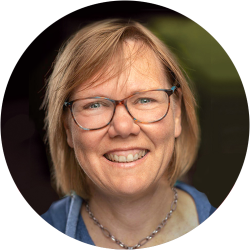
Strand 9: Reimagining Inclusive Education Through Disability Justice
Dr. Carly Christensen
Decades into the movement for inclusive education, exclusion and ableism remain embedded in school practices, policies, and curricula. Disability Justice (DJ), coined by a collective of disabled activists, moves beyond access to actively dismantle ableism and recognize disability as a valued identity. Yet, disability is often positioned in schools as an “instructional issue to fix” rather than a valued identity, reinforcing exclusion. This strand, designed for educators, administrators, and families, will explore DJ principles to analyze school practices, critique ableist systems, and reimagine more inclusive approaches. We will critically examine how aspects of schooling—such as curriculum, behavioral responses, and models like UDL—can either reinforce or disrupt ableism. Together, we will challenge biases and reimagine inclusion as an active, justice-driven practice that centres disabled people.
This three-day online workshop is designed to explore disability rights and ableism, providing a context for inclusive education through a series of resources, discussions, and activities. It covers complex topics that are distressing, reflecting the serious challenges and injustices faced by disabled individuals.
